How Moving from Full-Time Employment to Freelancing Led to Career Fulfillment
13 nov 2019
5 min
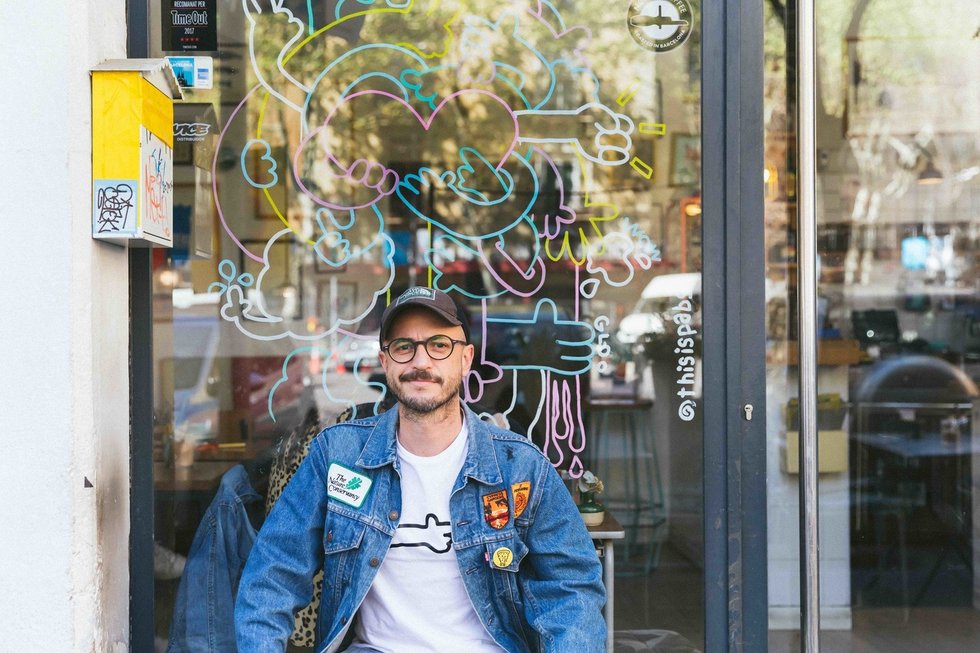

Freelance writer based in Barcelona. He has a background in education and languages and has lived in the UK, Italy and Spain.
Not satisfied with jumping continents and building a career at one of Barcelona’s top advertising companies, Mexican Pablo Fernandez decided to ditch the security of his nine-to-five and pursue his artistic ambitions as a freelance illustrator and creative advertising director. Seven years later, he’s as happy as ever and his work can be seen all over the city.
Can you tell us a bit about yourself?
My name’s Pablo—but people call me Pabs—and I’m from Querétaro, near Mexico City. When I was young I wasn’t the kind of kid who would spend all day kicking a ball around. I liked playing with friends, but I spent a lot of time in my own little world, drawing, making up stories, or playing with Playmobil. I guess I’ve always been creative!
What brought you to Barcelona?
I came to do a master’s in graphic design. I wanted to study abroad and was interested in getting to know Europe. I searched for programs and eventually found one I liked in Barcelona. Back then, it was easy to find affordable apartments here, so the move wasn’t that complicated. Afterwards, I did a postgrad in creative advertising at ESADE business school and was offered work after the course finished, so ended up staying.

What made you want to make the move to the world of freelancing?
I was working as a copywriter on TV campaigns and I loved it! But my passion is illustration, so I started doing a little on the side. Over time, I wanted to do more and, eventually, the financial stability of my job wasn’t enough to deter me.
I knew that having my own agency would allow me to combine my professional background in advertising with illustration work. And I was right! Today, I’ve developed a recognizable style and I can choose projects that allow me to leave my mark. For example, I currently do a lot of communications work for a local hospital and I’m doing the graphics for a national leisure website that I’m helping to set up.
Do you find yourself socializing with other freelancers?
Of course! I couldn’t do without it. When I started, I joined an illustrators group, where I made a lot of friends and contacts. There are loads of these groups here that can be found via the internet and social media. I also use coworking spaces, which are great, because they’re everywhere, you meet lots of people, and they definitely create a sense of community.
You can also find a lot of networking events, but not always for every sector. There’s a large programming community here who hold regular meetups, but as there’s more competition in illustration, it happens less.
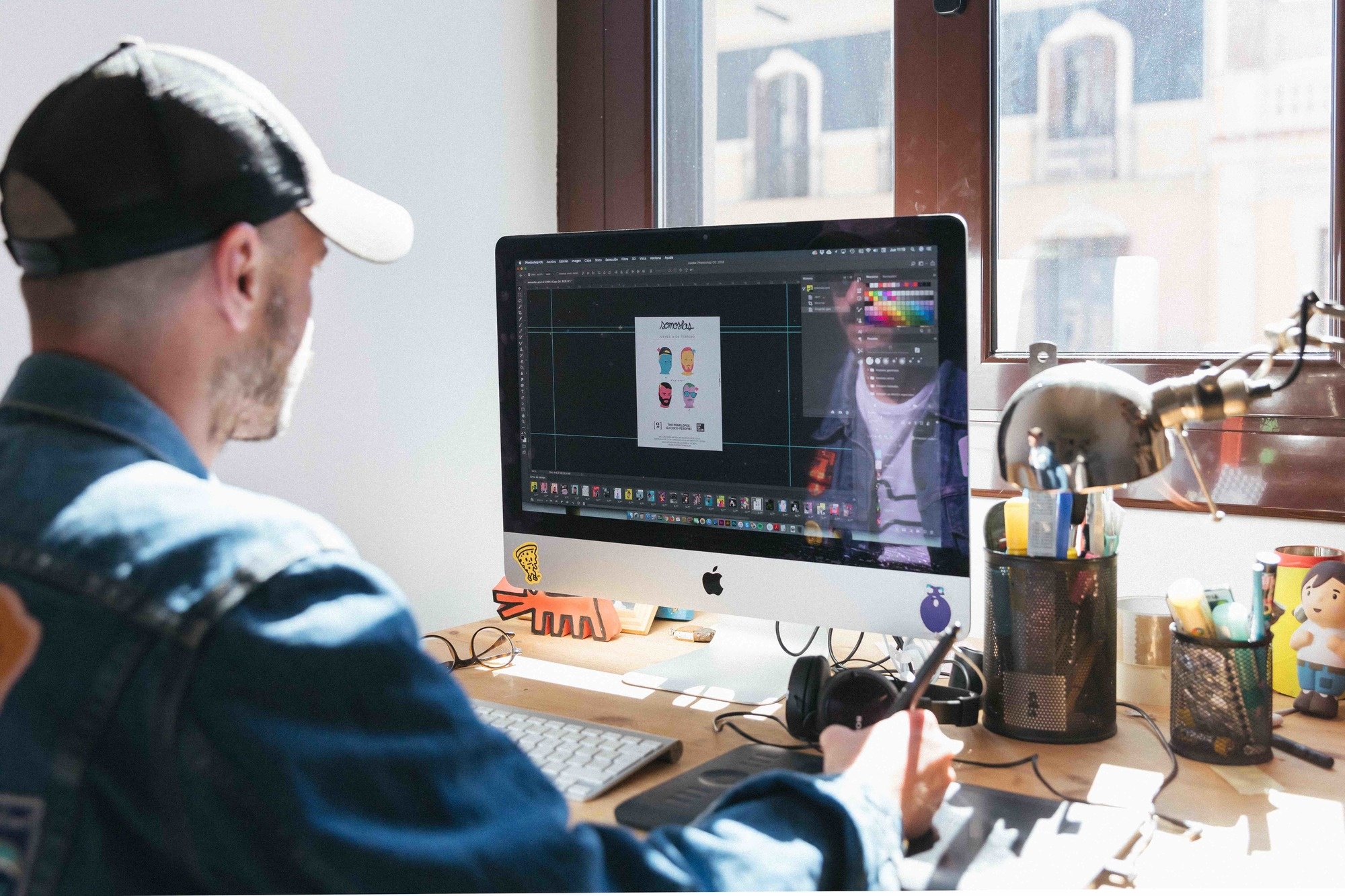
“Freelancers who work for companies in other countries tend to stick around because Barcelona is the perfect combination—they’re getting well paid and the rents here still aren’t as high as in other European cities.”
How does the life of a freelancer in Barcelona compare to that of someone with a regular day job?
There are pros and cons to both. Working in a company is great because you’re part of a team, but the rhythm can be frustrating. The working day in Spain can be long, so you can end up sitting in front of a computer for hours no matter how much work you have. When you freelance, you optimize your time, working when there’s work to be done and going out and enjoying the city when there isn’t. But freelancers don’t get that monthly pay cheque—some months, we earn a lot and other months nothing at all, and that can be stressful.
It’s often said that working freelance in Spain is expensive and complicated—would you agree?
Freelancing here is called being autónomo. Registering is easy and free if you do it yourself. What puts many people off is that, as well as paying income tax and VAT on the money you earn, you pay a fixed, monthly autónomo fee of nearly €300 for social security, so you need to find enough work to make it worthwhile. But that can be easier than actually getting paid—companies can take 60 to 90 days to pay and you have to be on top of them.
The admin is also complicated, especially if you invoice abroad or want to deduct expenses. And depending on the sector, it can be difficult to get information or advice. There’s a council agency called Barcelona Activa, which does a lot for entrepreneurs and start-ups, but I haven’t heard of much for artists and designers.
Having said all that, it’s getting easier—you can combine freelancing with contract work now, you can come off the autónomo register several times a year and, for the first year, the monthly autónomo fee is only €50.


Why do you think an increasing number of international freelancers are making Barcelona their home?
Well, a lot of people come here on holiday, or to study, and fall in love with the place. Freelancers who work for companies in other countries tend to stick around because Barcelona is the perfect combination—they’re getting well paid and the rents here still aren’t as high as in other European cities.
To what extent has the experience of other freelancers you know been similar to your own?
It’s been pretty similar, although some sectors are more complicated than others. Mine’s a little saturated right now—there are a lot of us in the creative industries fighting over the same work, whereas there’s currently more programming work than there are programmers.
Language is also a factor. Expats seem to spend a lot of time together, but if you want to integrate and get opportunities, you need to learn Spanish and Catalan and move in those circles. Although saying that, there are now more and more opportunities in English, which not everyone here is equipped for.

“Remember that there are projects that give you money, some that give you prestige, and others enjoyment, and all three are worthwhile.”
Looking back, what advice would you give others who are thinking of making a similar career change?
You’ve got to believe that it will work out. We often limit ourselves in unfulfilling jobs for security and, although freelancing can be difficult at first, it will work out—you just have to be patient. Being freelance is like creating your own business—it takes time. But you need to be proactive, give it everything you’ve got, send as many emails as possible, find your community, and get the support of people doing similar things. And remember that there are projects that give you money, some that give you prestige, and others enjoyment, and all three are worthwhile.
Any personal tips?
It depends on the sector but I would join a coworking space. Carry business cards—people don’t bother with them much anymore, but they’re a great way of making contacts and getting people to remember you.
Also, find a sidekick—there have been a lot of projects that only became possible when I teamed up with someone else.
And get yourself an accountant to deal with the admin and, if possible, have some capital when you start, for unforeseen costs and bills.
Aside from work opportunities, what does Barcelona offer you in terms of lifestyle that has made it such an attractive city to live in?
It’s very easy to live here. The weather’s great, the cost of living is low, the city is small, and you can get everywhere on foot. It’s a simple life, but for me right now, it’s perfect. I think it’s more liberal and free than Mexico. People are authentic and treat everyone the same here whatever job you do. In other places, the first thing people ask you is, “What do you do for a living?” whereas here they say, “What are we going to do today?”
Copyright: Welcome to the Jungle

Más inspiración: Work in Barcelona
Moving to Barcelona for work? Navigate the job jungle in this international hub with our insider tips, advice from locals and insights from industry experts.
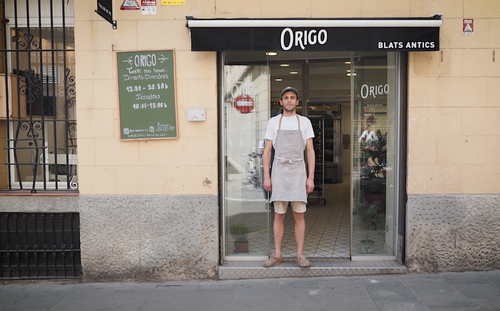
Work in Barcelona: François
Originally from Belgium, he left his job at Google in San Francisco to move to Barcelona with his wife, where he decided to open his own bakery.
11 dic 2019
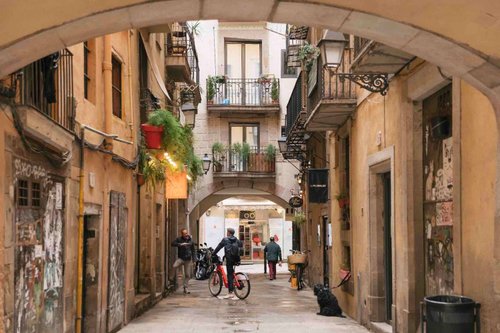
Work in Barcelona
Considering relocating to Barcelona? Let’s have a look behind the scenes to understand what it takes to be a happy expat in Barcelona.
11 dic 2019
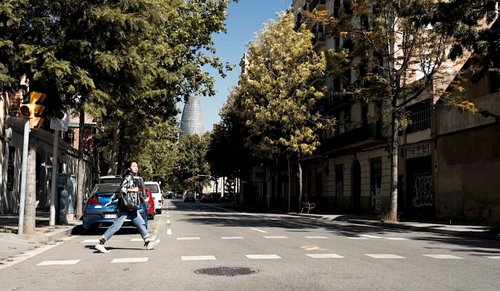
Work in Barcelona: Amy
Born and raised in Canada, Amy moved to Barcelona to change career by retraining as a software developer. Here's her expat experience of the city.
11 dic 2019
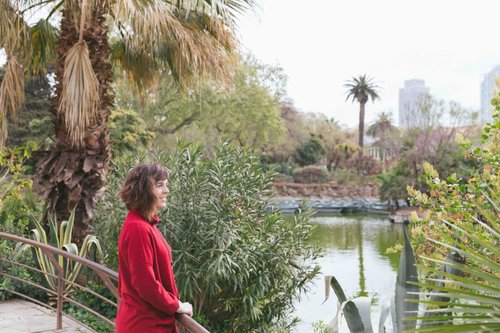
My Barcelona: ‘The city is so much richer than it seems’
For Anaïs, Barcelona is such an enticing city that she has made it her home not once, but twice.
13 nov 2019
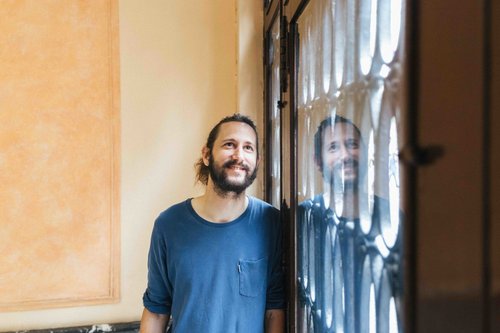
My Barcelona: ‘It’s the Silicon Valley of Europe’
Frenchman Erwan Riou originally qualified as an architect, but after a stint in Brazil, the 33-year-old started retraining as a programmer...
13 nov 2019

¿Estás buscando tu próxima oportunidad laboral?
Más de 200.000 candidatos han encontrado trabajo en Welcome to the Jungle
Explorar ofertas